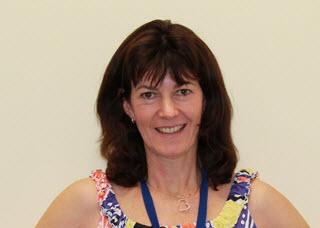- Home
- News
- Screening Matters, Issue 43, December 2013
- Reflecting on 2013
News
- Screening Matters Newsletter
- April 2019
- April 2018
- December 2017
- August 2017
- April 2017
- December 2016
- October 2016
- March 2016
- November 2015
- August 2015
- June 2015
- April 2015
- February 2015
- December 2014
- October 2014
- August 2014
- June 2014
- April 2014
- February 2014
- December 2013
- October 2013
- August 2013
- June 2013
- April 2013
- February 2013
Screening Matters
The National Screening Unit newsletter
In this issue:
- Reflecting on 2013
- Cervical screening support system “saved my life” says Nikki
- Combined screening day a great success
- Others learning from Dunedin colposcopy clinic’s quality control systems
- Targeted strategies in Hawke’s Bay see screening rates increase
- The benefits of complete information on request forms for antenatal screening for Down syndrome and other conditions
- Paediatrician wins award
Reflecting on 2013

The extremely successful 7th Australasian Newborn Hearing Screening Conference was held in May in Auckland, with the theme ‘nurture grow enrich’. Attended by 240 delegates from New Zealand, Australia, South Africa, India, the Netherlands and the United Kingdom, it brought together a wide range of people and perspectives involved in newborn hearing screening and early intervention. Feedback from conference attendees was very positive.
Work has continued on strengthening the Universal Newborn Hearing Screening and Early Intervention Programme (UNHSEIP) following the identification in 2012 that some screeners had not followed the screening protocol.
It is very pleasing that work on the 21 recommendations from the Incident Report are underway – including the provision to all district health boards (DHBs) of comprehensive protocols for monitoring individual screener data, and improvements to the training and education of newborn hearing screening staff. Thanks go to DHB and NSU staff for making strengthening the programme an absolute priority.
Thanks also – and congratulations – to the BreastScreen Aotearoa (BSA) team, lead providers, healthAlliance, Orion Health and Sectra for having in place, on time, a centralised electronic picture archiving and communications system (PACS) for digital mammography imaging. This was an extremely complex project, and its successful completion is a great outcome for New Zealand women, as their mammography images can be transmitted electronically enabling radiologist input across the country and quicker results. All eight BSA lead providers will offer digital mammography by the end of 2013.
This year breast screening rates have continued to increase with screening rates for Pacific women aged 50 to 69 years now slightly higher than the national rate, at 73 percent. This is an outstanding result, and testament to the skills of our screening workforce in continuing to reach Pacific women to encourage them to have breast screening, and never giving up!
The National Cervical Screening Programme (NCSP) has had a strong focus on quality improvement, with the updating of NCSP policies and standards for colposcopy and laboratories. These take into account the best available evidence and include clearer data requirements for monitoring and evaluation. The NSU has also continued its work with DHB colposcopy and IT teams to assist with the upgrade of colposcopy software and the implementation of electronic messaging.
And congratulations also go to paediatrician Ben Albert, who has won the Kaichi Kida Award for his presentation of a study on the outcomes of children diagnosed with congenital hypothyroidism (CHT). The study, commissioned by the NSU, found that children diagnosed with CHT had similar IQs and motor function as children without CHT. You can read more about Ben’s award in this issue of Screening Matters.
I know that I am not alone in looking forward to a Christmas break, after a very busy year! I would like to thank NSU staff and providers for another year of incredibly hard work. People’s lives are impacted by the quality of our screening programmes, and I would like to acknowledge your dedication and professionalism, and say how much I appreciate it.
Have a happy and safe holiday, and see you in 2014!
To receive the Screening Matters newsletter by email, fill out our sign-up form.

